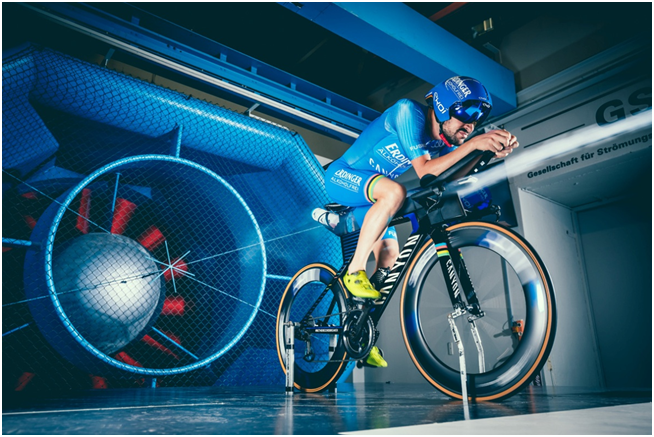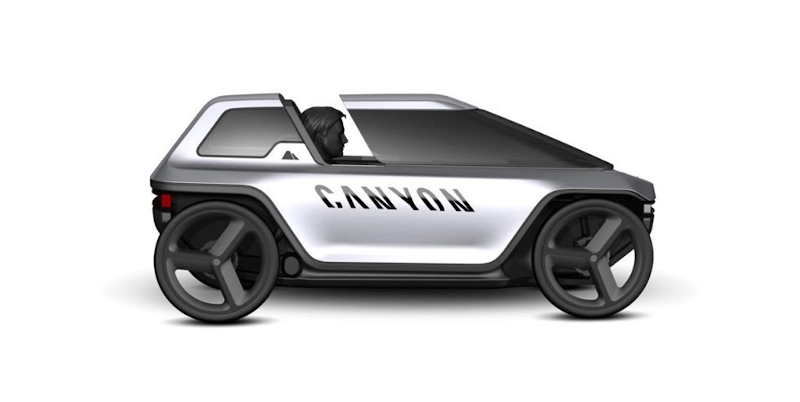
Charles R. Goulding and Preeti Sulibhavi take a ride with 3D printing for advanced bicycles.
Canyon Bicycle Business
Canyon, the large bike manufacturer, has been in the news at year-end 2020. The first announcement was an acquisition by an acquirer that surprised the market, followed by a billion-dollar investment in a new electric pedal car.
The shareholder group that owns the lion’s share of adidas, Groupe Bruxelles Lambert (GBL), took a controlling stake in Canyon Bicycles near the end of 2020. Banking on the continued trend in rising global premium bicycle sales, GBL, the Brussels-based holding company, has valued its new investment at almost a billion dollars. Canyon Bicycles, a Germany-based company, experienced surging popularity during the global pandemic, with social distancing protocols drawing users to outdoor cycling as a reprieve.
Tony Fadell, a former Apple executive, is one of the other investors. Mr. Fadell, renowned for his work inventing the iPod and NEST (the temperature-control device), is also an avid cyclist and will be on the advisory board of Canyon Bicycles.
Canyon And 3D Printing
Canyon has a history of utilizing and integrating 3D printing in its bicycles. Professional and serious cyclists sometimes ride with their extensions at high angles, which creates a heavy drag. To improve aerodynamics and finishing time, 3D printing was found to improve the design of the bicycle extension. In fact, a collaboration between Swiss Side, Canyon Bicycles, and Sauber Engineering, turned an ordinary plastic part into a real high-performance metal part.
The design was optimized for weight and strength with the end goal being a stronger, lighter, more aerodynamic part. The group found that titanium was the optimal material for the 3D printed extensions. The only thing that needs to be improved might be the cost as these premium bicycles often sell at exorbitant prices.

Canyon sees an opportunity in the electric bicycle market. In 2020, the German cycling manufacturer unveiled a new electric pedal car concept called the Canyon Future Mobility Project. The “vehicle” includes a 2,000 Wh battery rated for 150 km (93 miles) of range with top speed of 37 mph. A second battery is certainly an option for improving speed and distance. With the new GBL investment into the company, Canyon can ride this electric pedal car concept to the bank.
Companies engaged in 3D printing activities and similar developments may be eligible for the Research and Development Tax Credit.
The Research & Development Tax Credit
Whether it’s used for creating and testing prototypes or for final production, 3D printing is a great indicator that R&D Credit eligible activities are taking place. Companies implementing this technology at any point should consider taking advantage of R&D Tax Credits.
Enacted in 1981, the now permanent Federal Research and Development (R&D) Tax Credit allows a credit that typically ranges from 4%-7% of eligible spending for new and improved products and processes. Qualified research must meet the following four criteria:
- Must be technological in nature
- Must be a component of the taxpayer’s business
- Must represent R&D in the experimental sense and generally includes all such costs related to the development or improvement of a product or process
- Must eliminate uncertainty through a process of experimentation that considers one or more alternatives
Eligible costs include US employee wages, cost of supplies consumed in the R&D process, cost of pre-production testing, US contract research expenses, and certain costs associated with developing a patent.
On December 18, 2015, President Obama signed the PATH Act, making the R&D Tax Credit permanent. Since 2016, the R&D credit has been used to offset Alternative Minimum Tax (AMT) for companies with revenue below $50MM and, startup businesses can obtain up to $250,000 per year in payroll tax cash rebates.
The Bicycle Concept “Re-cycled”
It’s a fact that before there were cars, there were bicycles. So it should not be a great surprise that Canyon has recycled the cycling concept and applied it to electric vehicles. With financial backing from GBL and a forecast for continued bicycle demand, we should see Canyon taking this project straight to the finish line.
